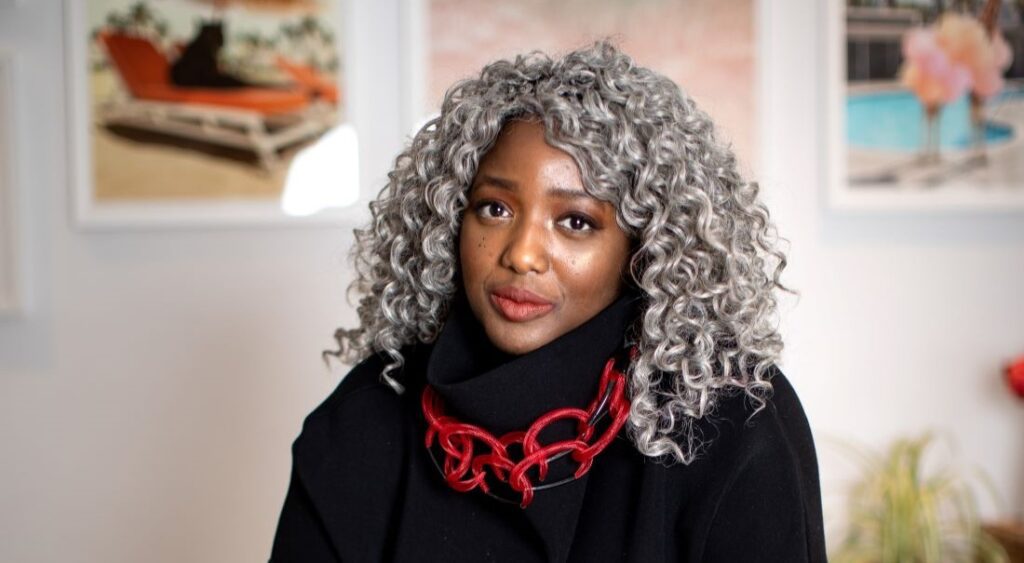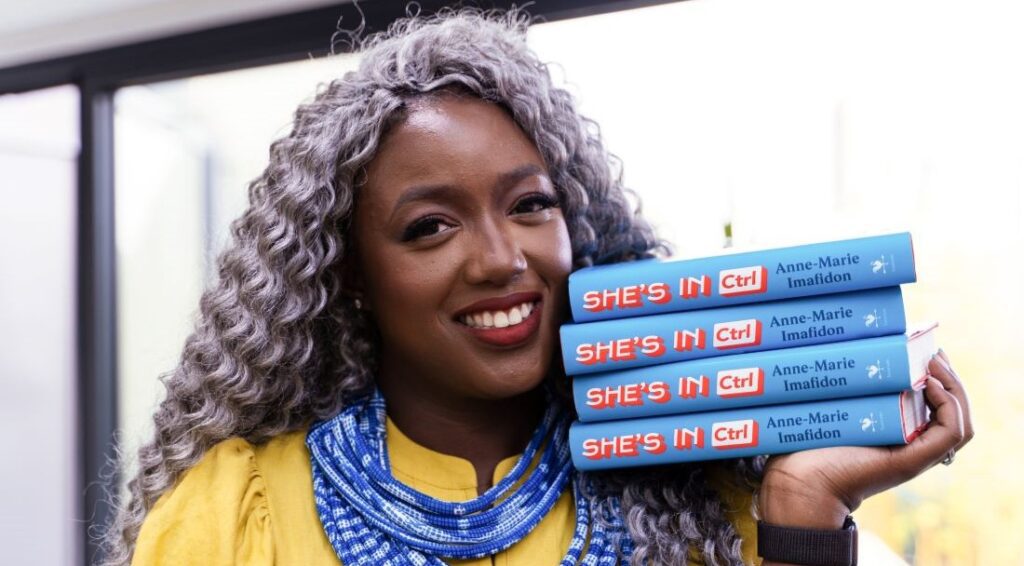This website uses cookies so that we can provide you with the best user experience possible. Cookie information is stored in your browser and performs functions such as recognising you when you return to our website and helping our team to understand which sections of the website you find most interesting and useful.
Stemettes founder Dr Anne-Marie Imafidon on empowering young women in STEM
By Lysanne Currie | 25 October 2023 | Culture, Philanthropy, Wealth
From child prodigy to tech trailblazer and passionate advocate for change, Tempus meets social enterprise Stemettes founder Dr Anne-Marie Imafidon MBE

Dr Anne-Marie Imafidon’s journey began with innate curiosity. While her young classmates were still playing with toys, she was rewiring her parents’ washing machine, dismantling their VCR, and “messing about” on her father’s computer – eager to find out not just how they worked but what problems she could solve.
Luckily, she had very supportive parents – dad Chris, an ophthalmologist, and mum, Ann, a linguist. By age 10, Anne-Marie was speaking six languages. Two GCSEs in maths and computing followed. By 11, she was the youngest girl in the UK to pass A-level computing.
Aged 15, she was offered a place to study Maths and Computer Science at the University of Oxford, which she began at 17. By 20, she’d become one of the university’s youngest-ever graduates with a Master’s degree in her field and – just as significantly – she was one of just three women in a graduating class of 70 students.
It was while working at Deutsche Bank that Anne-Marie became more acutely aware of the gender disparities within the world of STEM (Science, Technology, Engineering and Mathematics). Her lightbulb moment occurred during a technical conference.
“There were 3,500 technical women in one space and I thought, my goodness, this is my people,” she says. “[But] I saw that women’s experiences, perspectives and problems weren’t reflected in technology, which is seriously dangerous.”
This realisation led to Anne-Marie co-founding Stemettes in 2013. The dynamic social enterprise is aimed at encouraging more girls, young women and non-binary people from five to 25 to enter the STEM field by challenging stereotypes, fostering diversity and ultimately bridging the gender gap.

It also makes good business sense: in 2020, a McKinsey report revealed that companies with a more balanced gender profile were 25% more likely to outperform their less diverse competition.
However, despite women making up half of the UK workforce, and an increasing number of young women opting for STEM A-levels, still only 14% of all those in STEM careers are female. Meanwhile, despite companies placing a greater emphasis on addressing the gender gap, women remain largely underrepresented in IT positions. A 2019 survey on STEM careers found that more than half of young women are interested in these fields, but 78% are discouraged by the gender inequality.
The Covid-19 pandemic only exacerbated the situation, with 60% of female STEM students believing their career prospects have been negatively affected. As Imafidon told The Times, “There has definitely been progress – but there’s a pushback from a few people in science. It’s not overt, but there’s a feeling that ‘What you’ve had is enough – we’ve helped enough’.”
It’s a disparity, she tells Tempus, that’s “driving our economies, healthcare, the way we work, play and live… for the sake of the world’s future – not just that of the tech industry – we must ensure we serve women’s unique needs and experiences.”
TAKING CTRL
Today, Anne-Marie is considered one of the most powerful women in tech. She is a member of Research England, president of the British Science Association, and in 2017 was awarded an MBE for her work as a champion and inspiration for women looking to find a role in the world of STEM. She has a podcast – Women Tech Charge, in which she meets women from across the tech industry – and covered mathematician Rachel Riley’s maternity leave on TV quiz Countdown, a stint that raised some eyebrows: “There was a backlash because people had never seen a black woman do maths before,” she says. “They thought I was a diversity hire.”

Anne-Marie is also the author of three books. The first two are academic books about maths; but her latest, She’s In Ctrl, was borne from a desire to show women how they can ‘take back tech.’ It is also a reminder how often our female pioneers are written out of our schools’ education – amazing women such the 1930s and 1940s Hollywood actor Hedy Lamarr, who developed groundbreaking technology initially used for radio-controlled underwater missiles, which today forms the basis of wifi and Bluetooth.
“We want people to talk about women innovators, women in STEM in those classrooms,” she says. “Those should be household names in the same way that everybody can recite Newton and talk about the bathtub.”
In her book and work with the Stemettes, Anne-Marie passionately advocates for changes in textbooks and curricula to making these female STEM innovators as instantly recognisable as male figures such as Einstein and Darwin. The difficulty, she says, is in part down to a decline in education initiatives.
“There needs to be substantial investment in education,” she says. “We need to get more people to want to be teachers and want to stay as teachers. I’d do everything possible to ensure teachers want to stay in the UK.”
Other kinds of education are necessary too: as chair of the UD Music Foundation, an initiative that gives young people opportunities across the music industry, Anne-Marie says she was “shocked at how much I end up teaching freelancers and creatives about their own finances and their own accounting”.
“I ended up calling it ‘the creative back office’,” she says. “I’ll probably ruffle a lot of feathers, but as every day passes I still can’t believe I’ve seen one accountant that specialises in creatives.”
At the start of 2023, Stemettes celebrated its 10th birthday. More than 60,000 young people have enjoyed and benefited from its programmes and workshops (including the Duke and Duchess of Sussex, who took part in a Stemettes workshop for 2018’s International Women’s Day).
It’s a remarkable success story but, says Anne-Marie, there is still much work to be done – particularly in terms of lobbying for systemic changes in education. She is passionate about the need to focus on educating all children, from an early age, to understand that STEM careers are wide open to them.
“Stemettes shouldn’t have to exist,” she insists. “If the education system was doing what it needed to do, I wouldn’t need 24 people in my team running around the country trying to at tell girls that they’re not the first girl that’s ever been interested in physics.”
This is why, says Anne-Marie, that her greatest hope is that Stemettes, one day, becomes obsolete.







